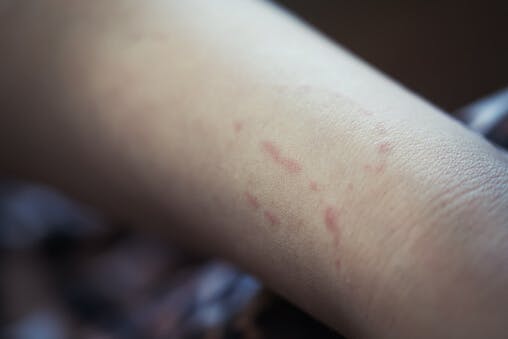Biting

Question
Although not an illness, I am quite bothered by my 19 month old boy's habit of biting. I am particularly concerned with this when he is around other children. I cannot turn my back for a second and he is attempting to bite. He is very large for his age and with his size and his full set of teeth, it makes this a problem which I am unsure of how to handle. One of the children that he has bitten has quite a mark on her cheek and the child's mother has said I need to get help for my son. I thought this may be a good forum to hear how common this is with other children his age. Any advice that you could give me would be appreciated. I am very worried about the next time he attempts to bite a smaller child. Any suggestions?
Elaine Chalker - St. John's, Newfoundland
Dr. Greene's Answer
What a sinking feeling to see, or hear about, your toddler biting another child. It may be comforting to know that most parents will go through this at one time or another as their children explore the wide variety of ways to interact with others in their search to find the best ways to relate.
Your son is at an age where the urge for exploration and experimentation propels him forward throughout the day. He is also continually seeking to attract attention, especially from adults. It wasn’t always this way. Your son began his life in the solitary confines of the womb — a protected place where he alone was the center of attention and where all his needs were met. After his birth, his primary relations were with adults who likewise treated him with love and understanding. In encounters with other children, he had very little control. It wasn’t until he began to toddle that a whole new world of decisions opened up — to approach or run away, and how to respond if he and another child both want to play with the same toy or be with the same person. A whole set of previously unknown situations presented themselves to your son. Somewhere in this time period most children experiment with biting to see how exerting this power will affect their interactions with other kids — whether it will get them the things or the attention they want (children want attention even more than toys and playthings).
What your son is going through is quite normal. It is particularly normal for bigger kids to bite smaller kids in order to assert their power. The biting behavior can be reinforced by paying lots of attention to it, even if it is negative attention. To help him grow quickly through the biting stage, when you observe biting, say, “No!” firmly, so he can tell you are not pleased, then repeat and name the behavior, “No biting!”. Then scoop him up from the situation and set a timer for about two minutes (the rule of thumb is one minute for every year he is old) and pay no attention to him for the next two minutes, even if he acts sorry or angry. Instead, lavish attention on the bitten child. When the two minutes are up, go right on with your son as if nothing has happened.
You will have to repeat this scenario a number of times, but it will teach him that biting is not the way to get the things he wants. Consistency is important, so if you are going to leave him with other adults in charge, ask them to take the same approach.
It is a fine idea to use distraction as well. When you see a situation arising where you think your son might bite, you might want to distract one or another of the parties involved and delay these learning experiments until he is a little older and can learn more quickly. Some people advocate spanking as a solution for biting, but if the goal is to teach him peaceful resolution of conflicts, that is probably not the quickest way to get there.


